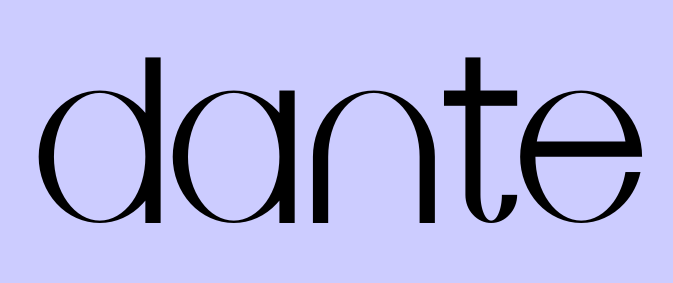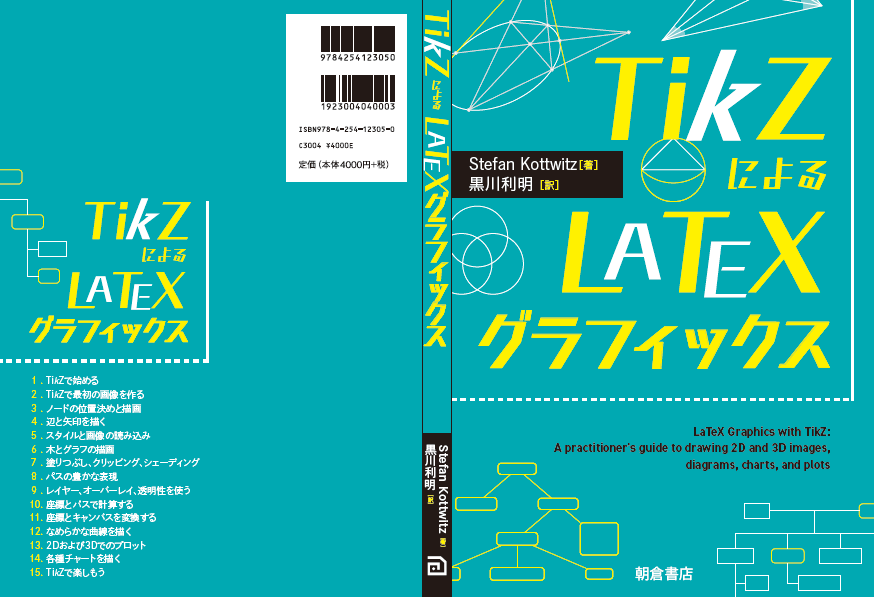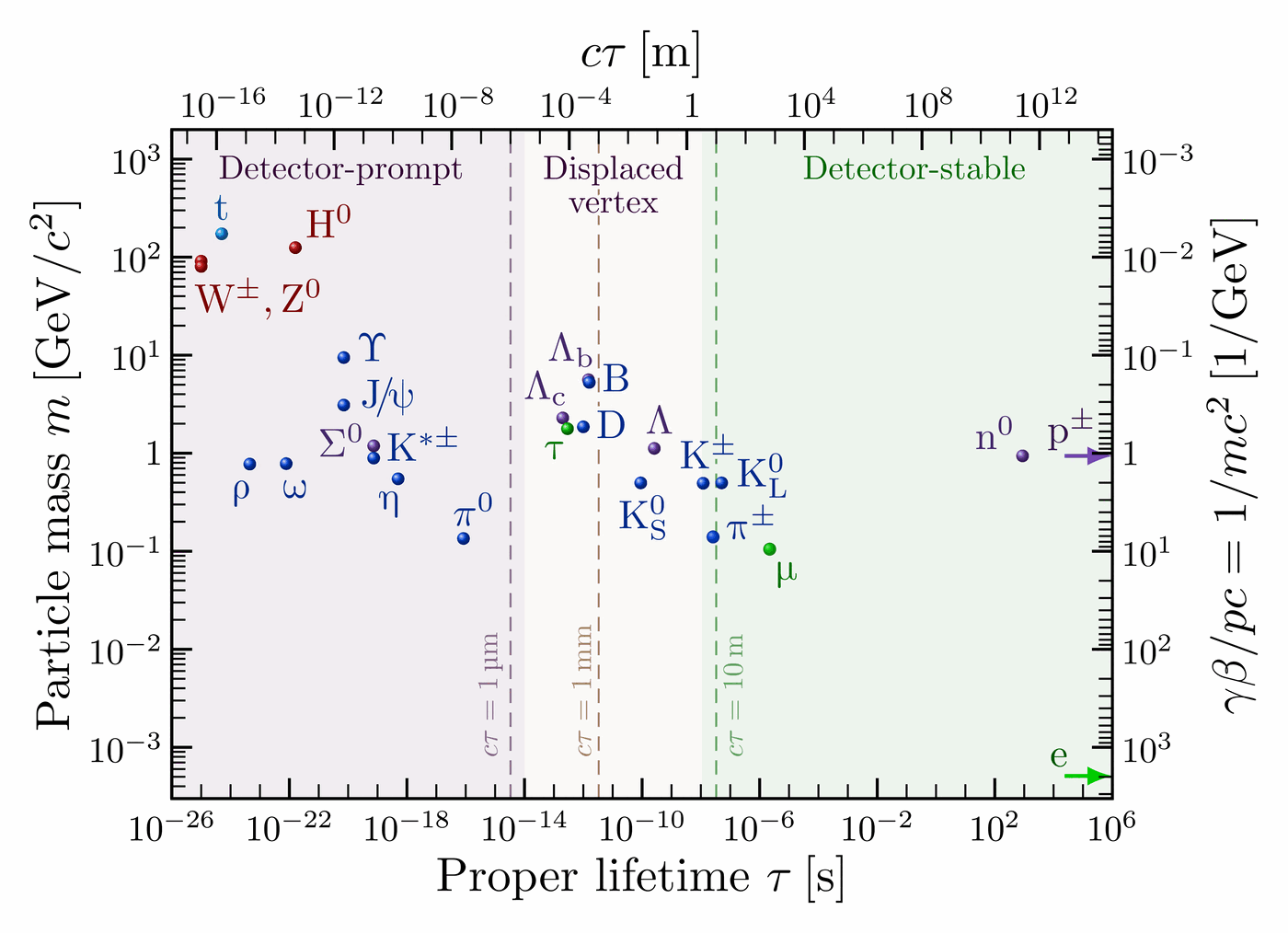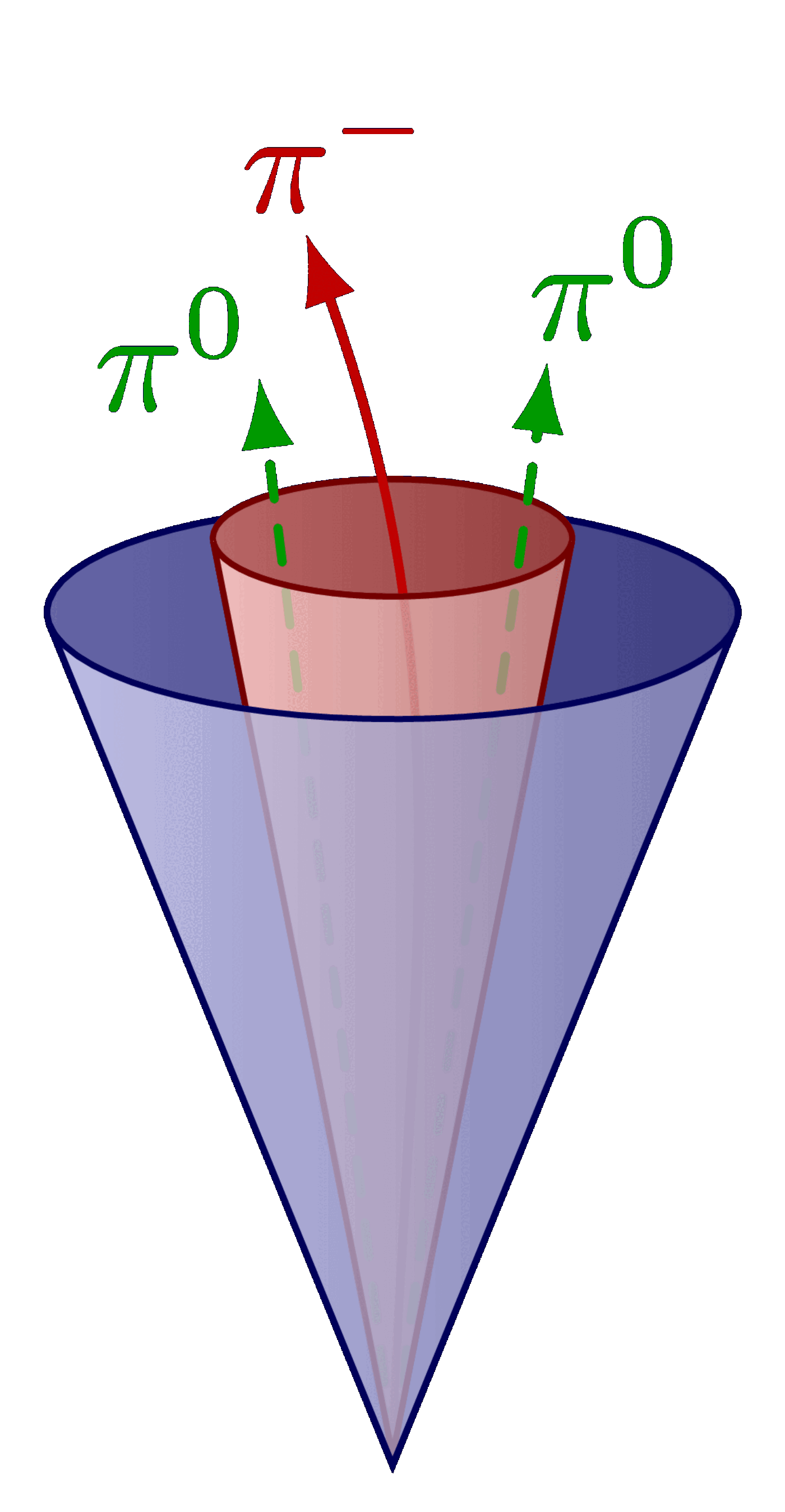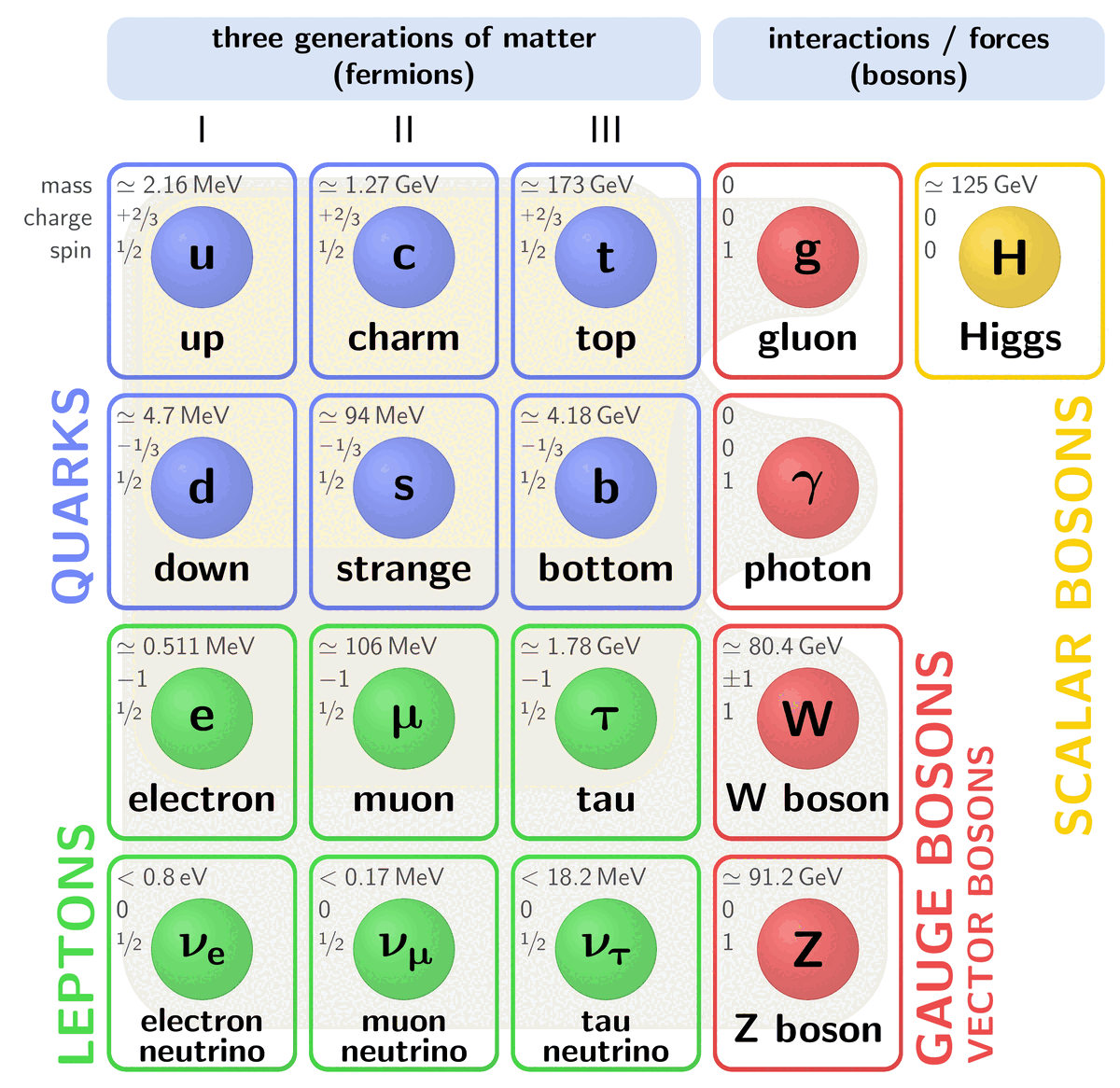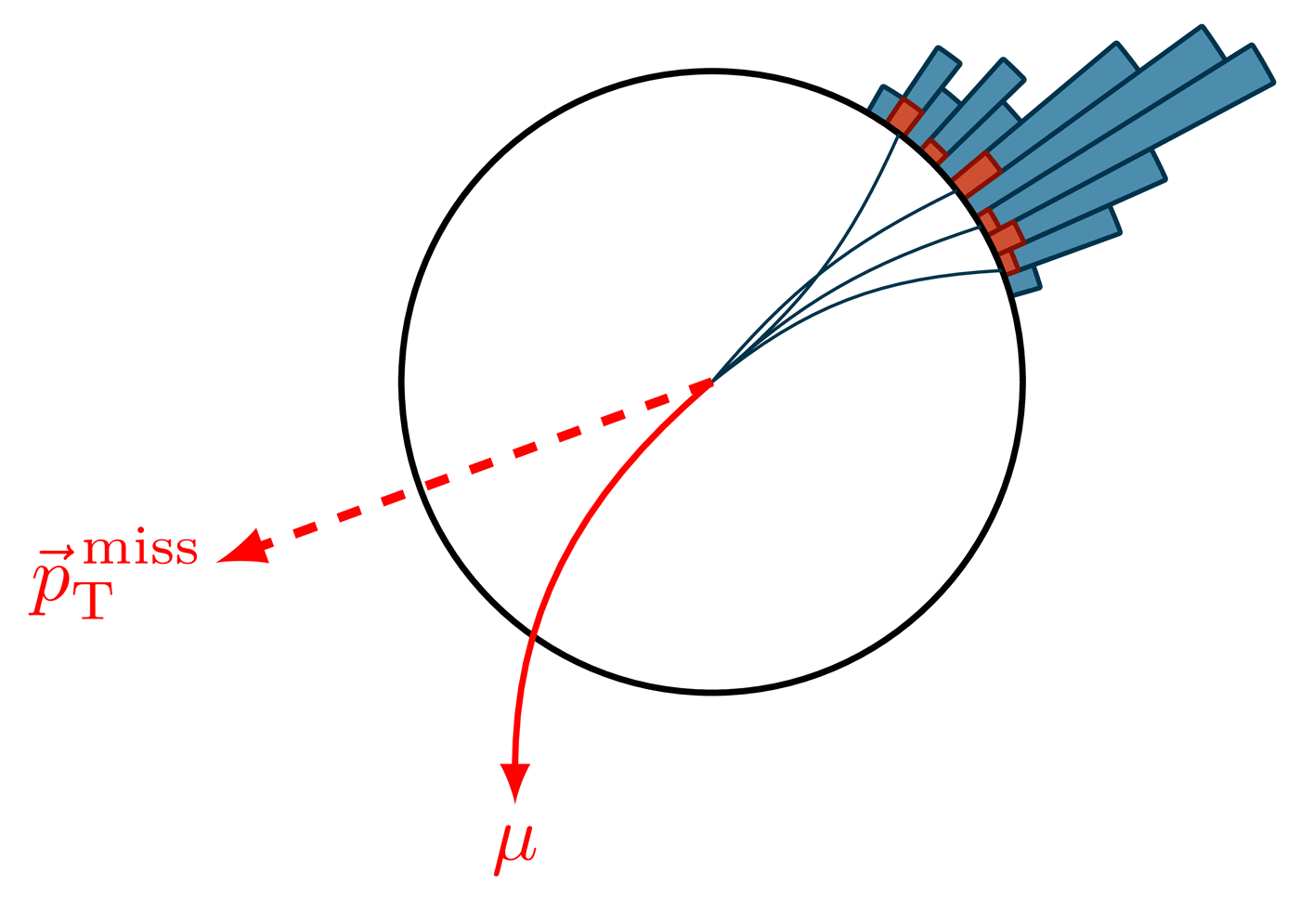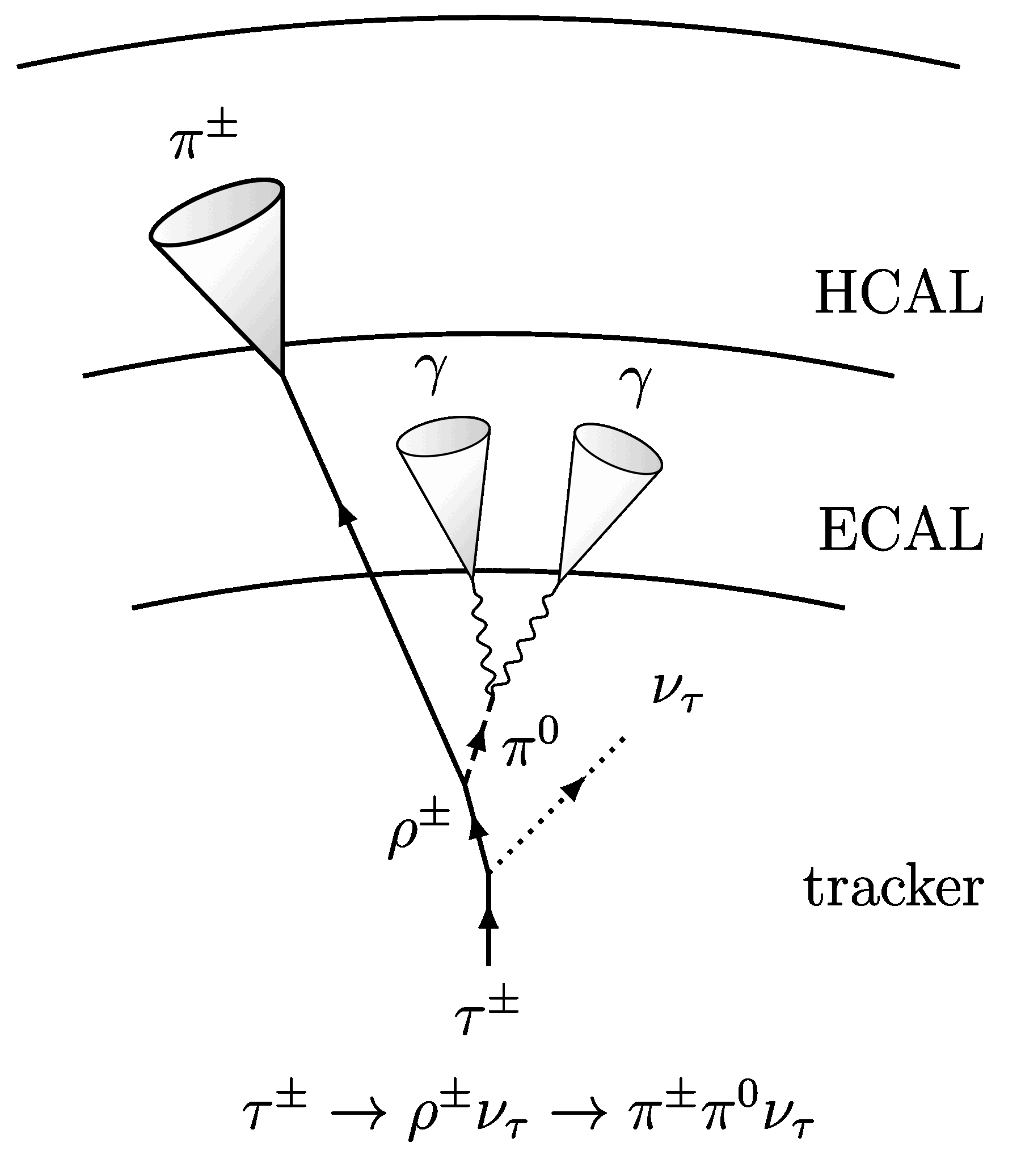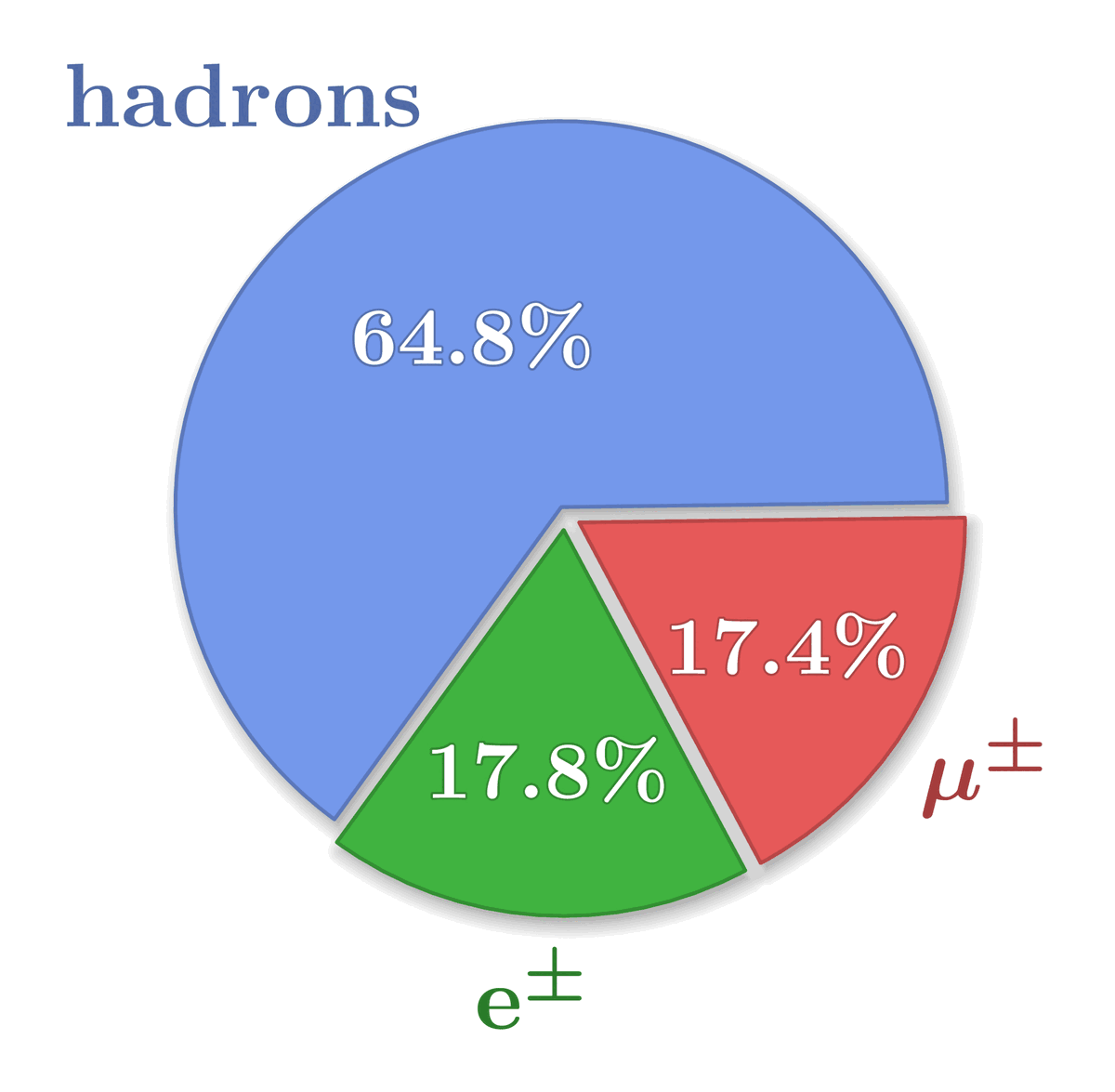Signatures of long-lived particles in the CMS detector.
Inspired by J. Antonelli’s presentation at ICHEP 2016.
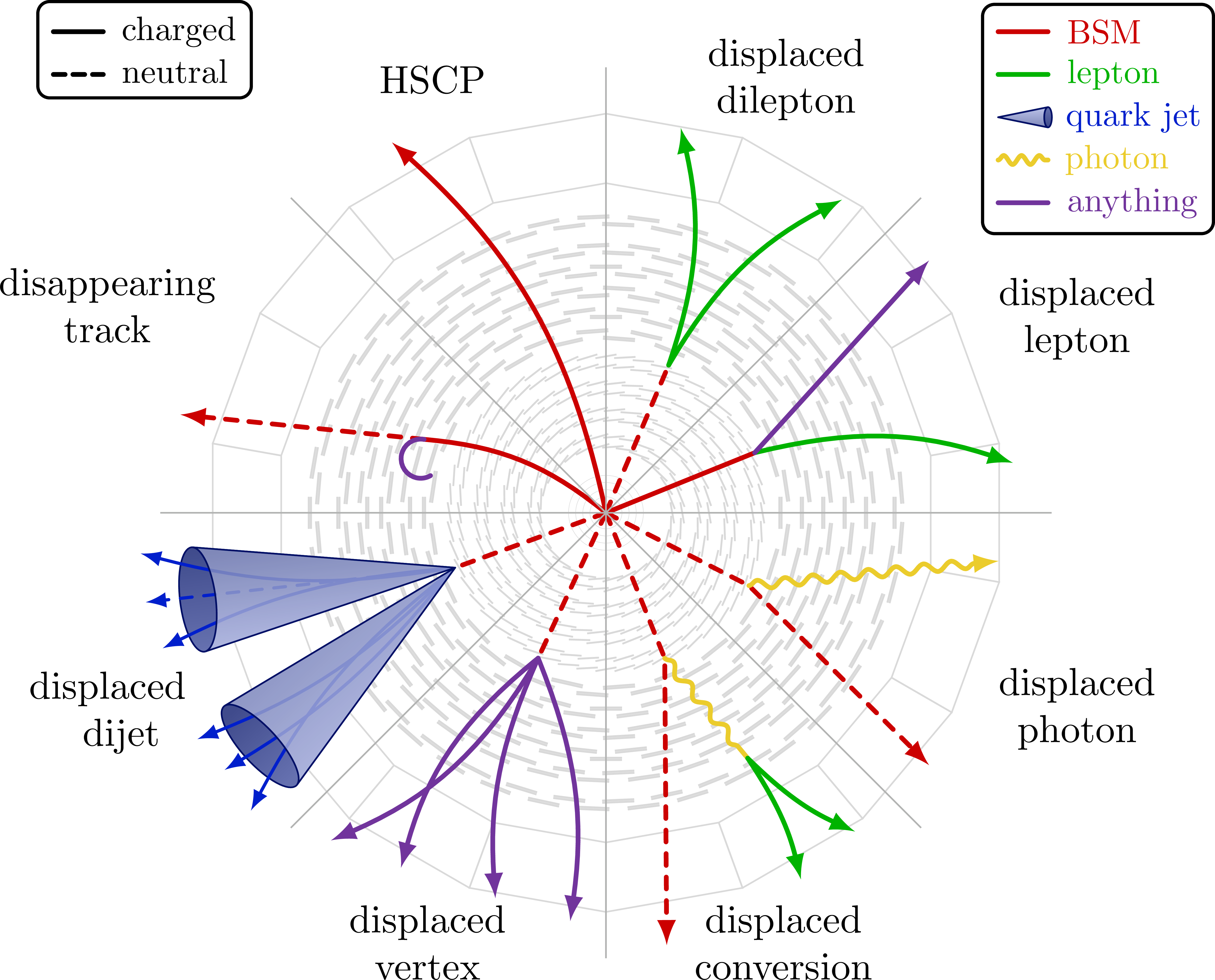
Displaced dilepton:
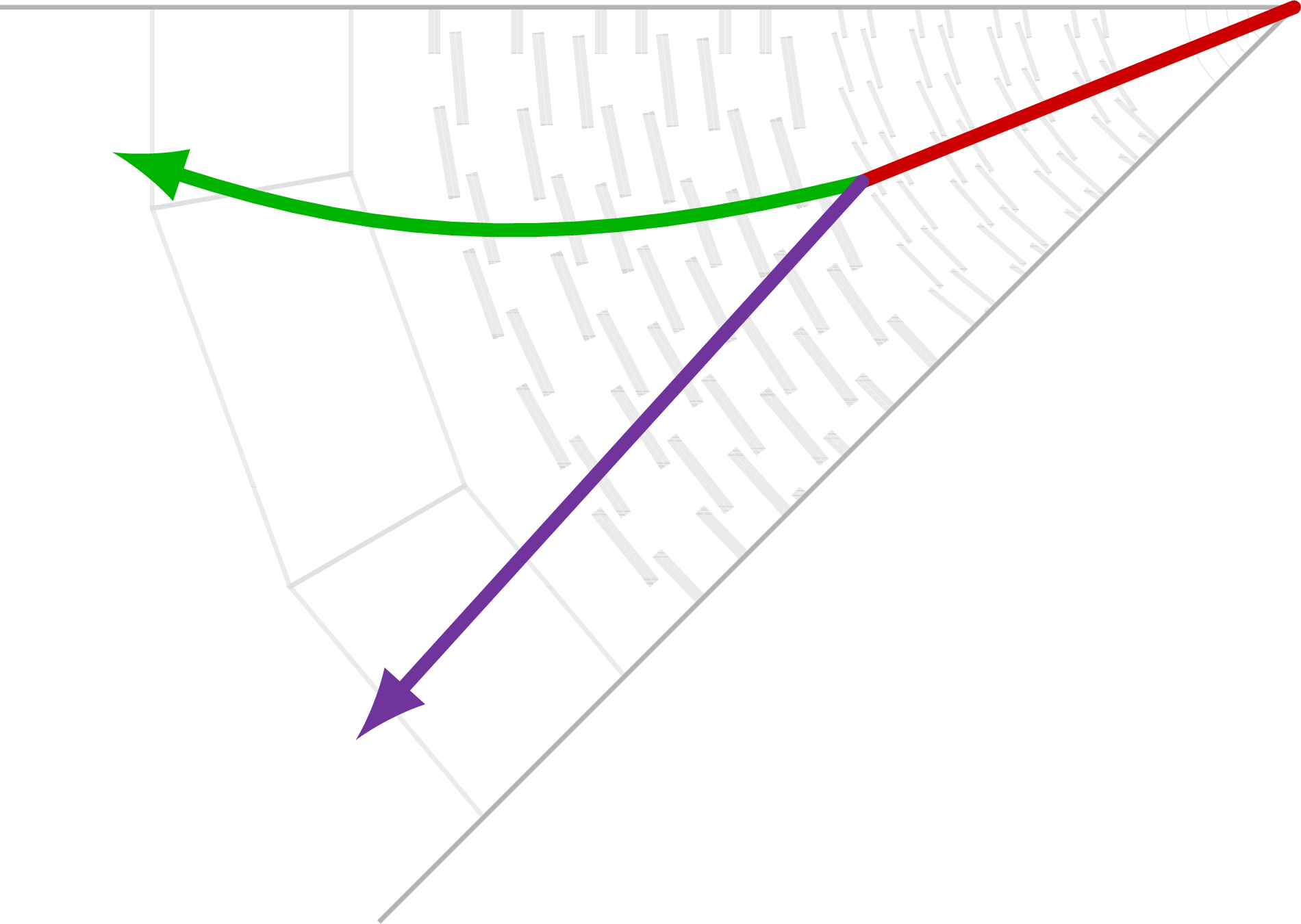
Displaced lepton:
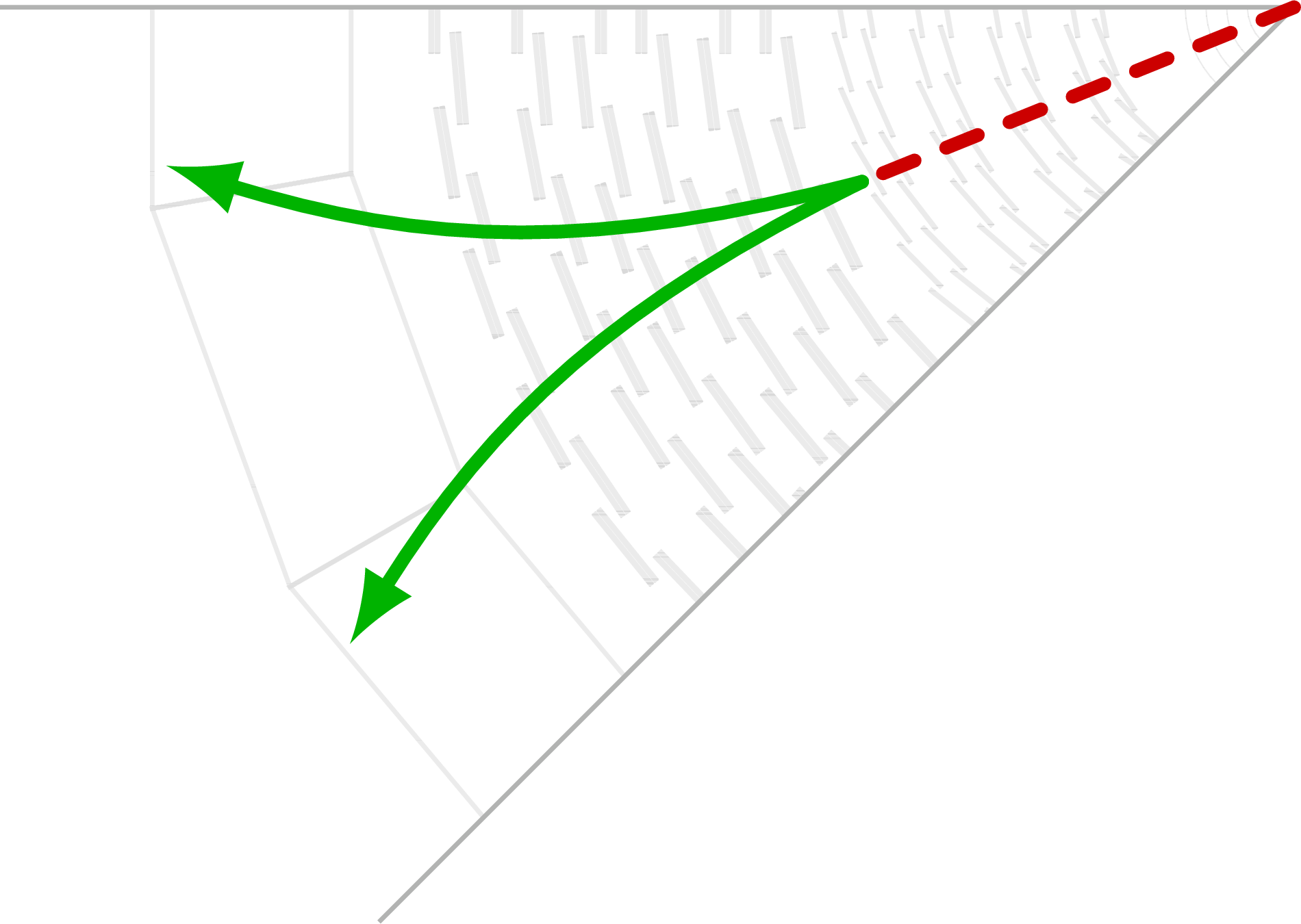
Heavy long-lived charged particle (HSCP):
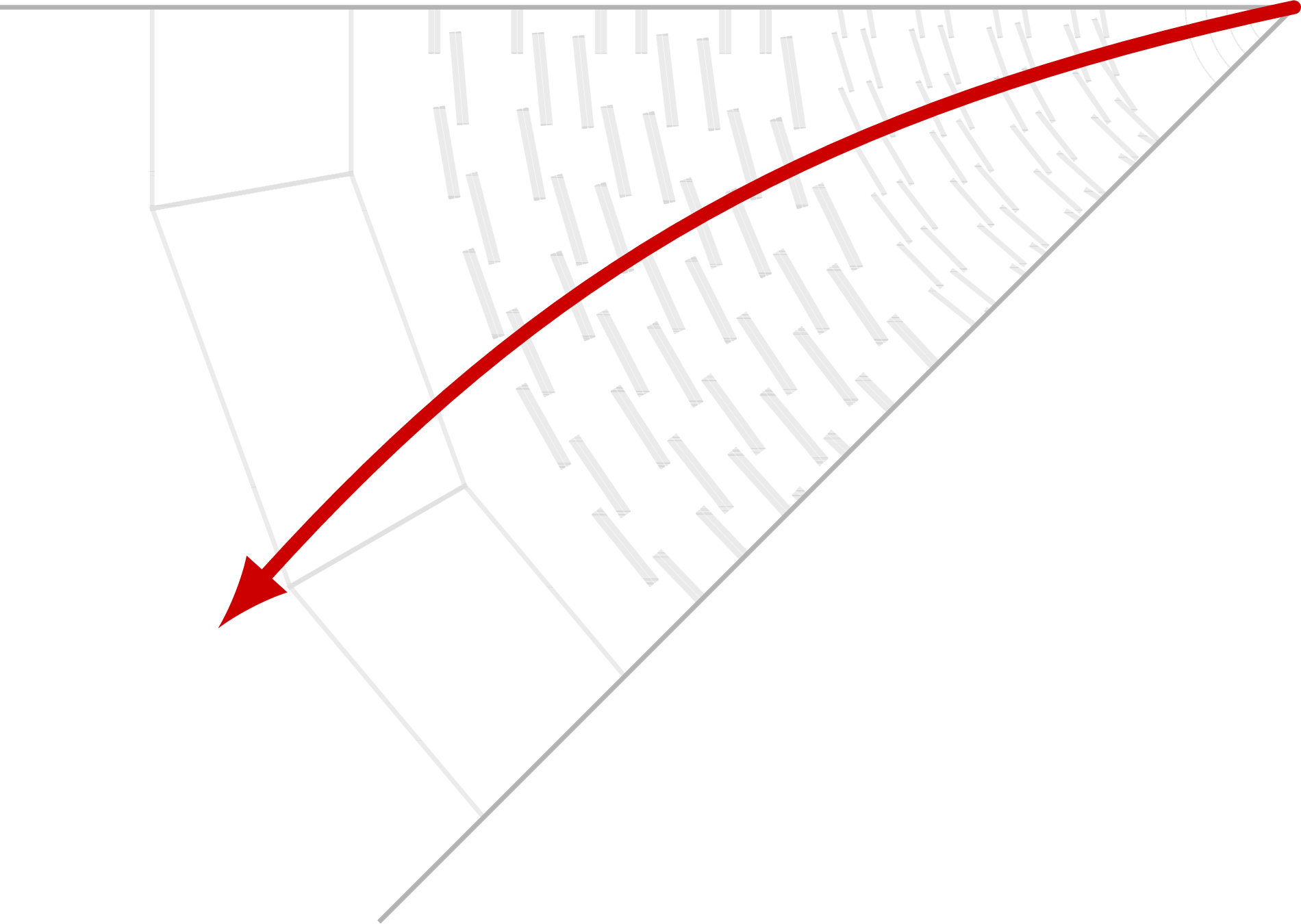
Disappearing track:
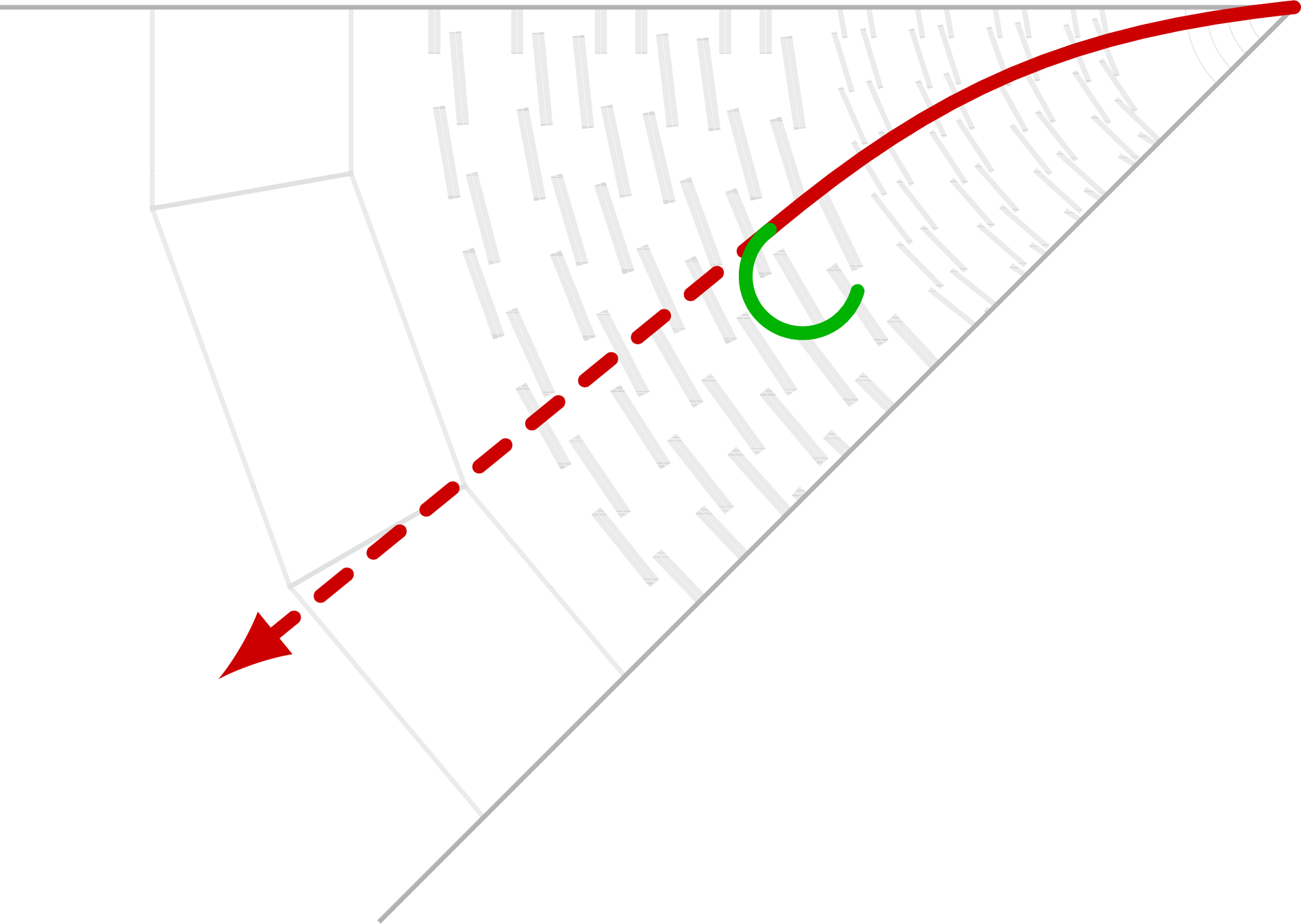
Displaced dijet:
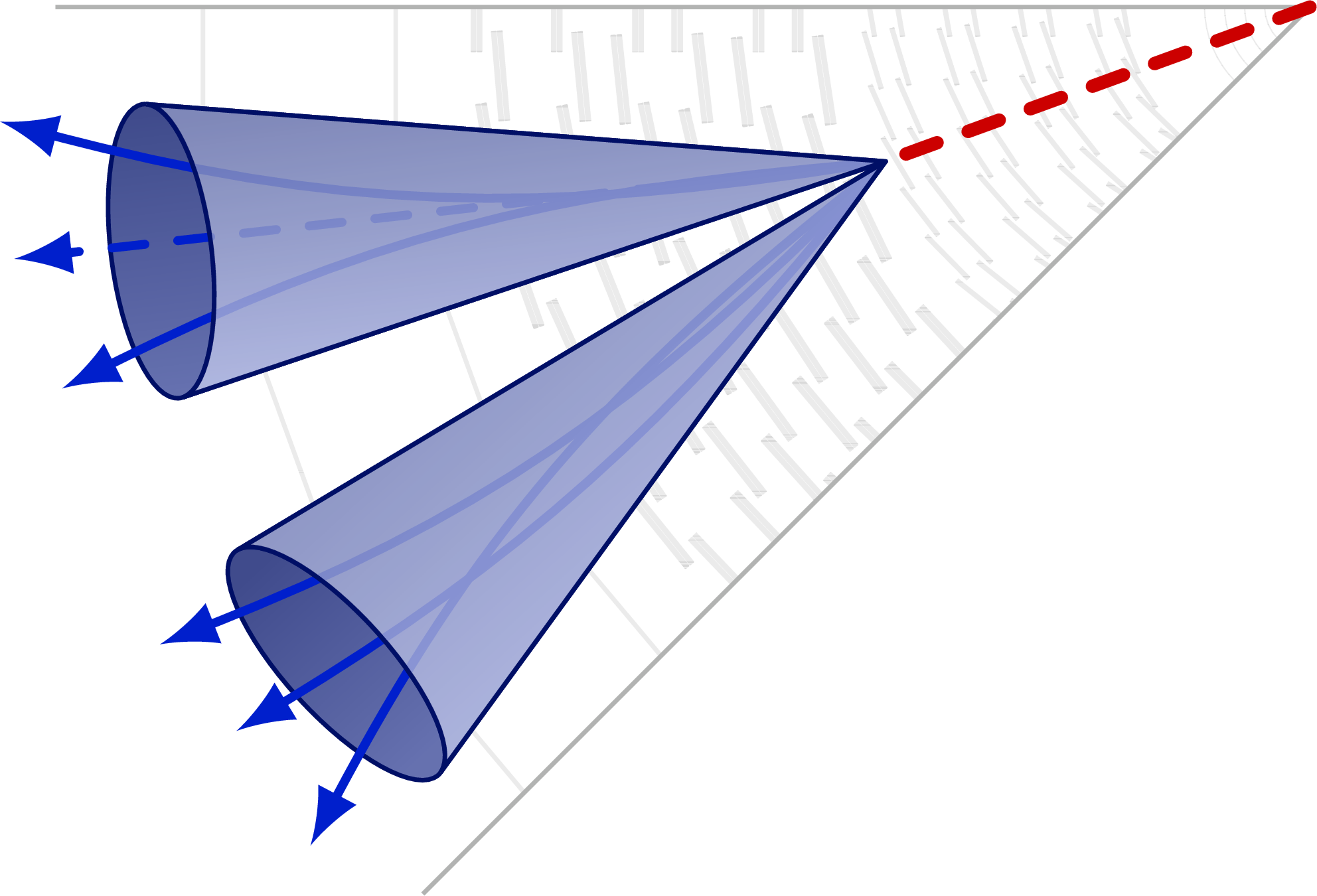
Displaced vertex:
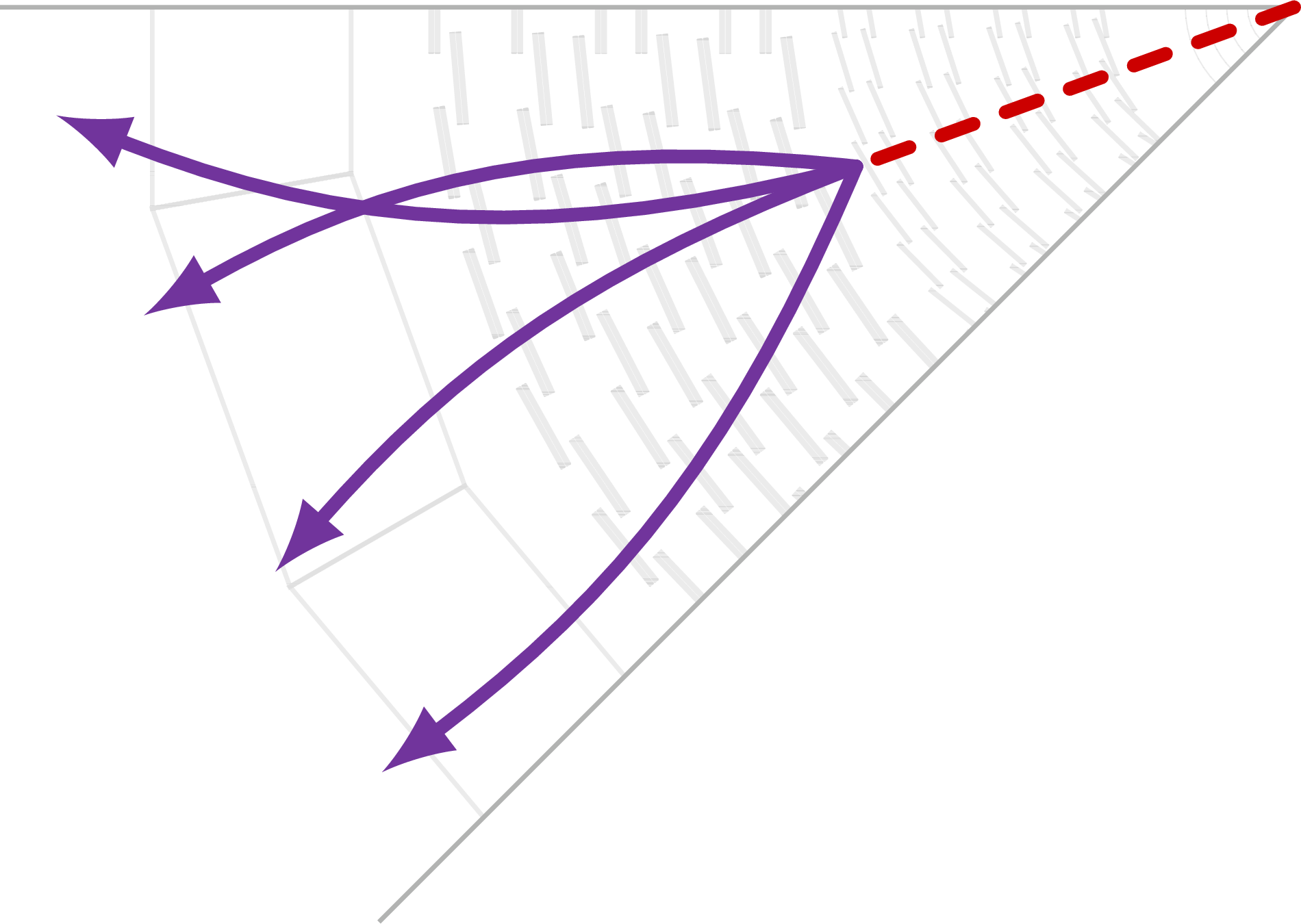
Displaced conversion:
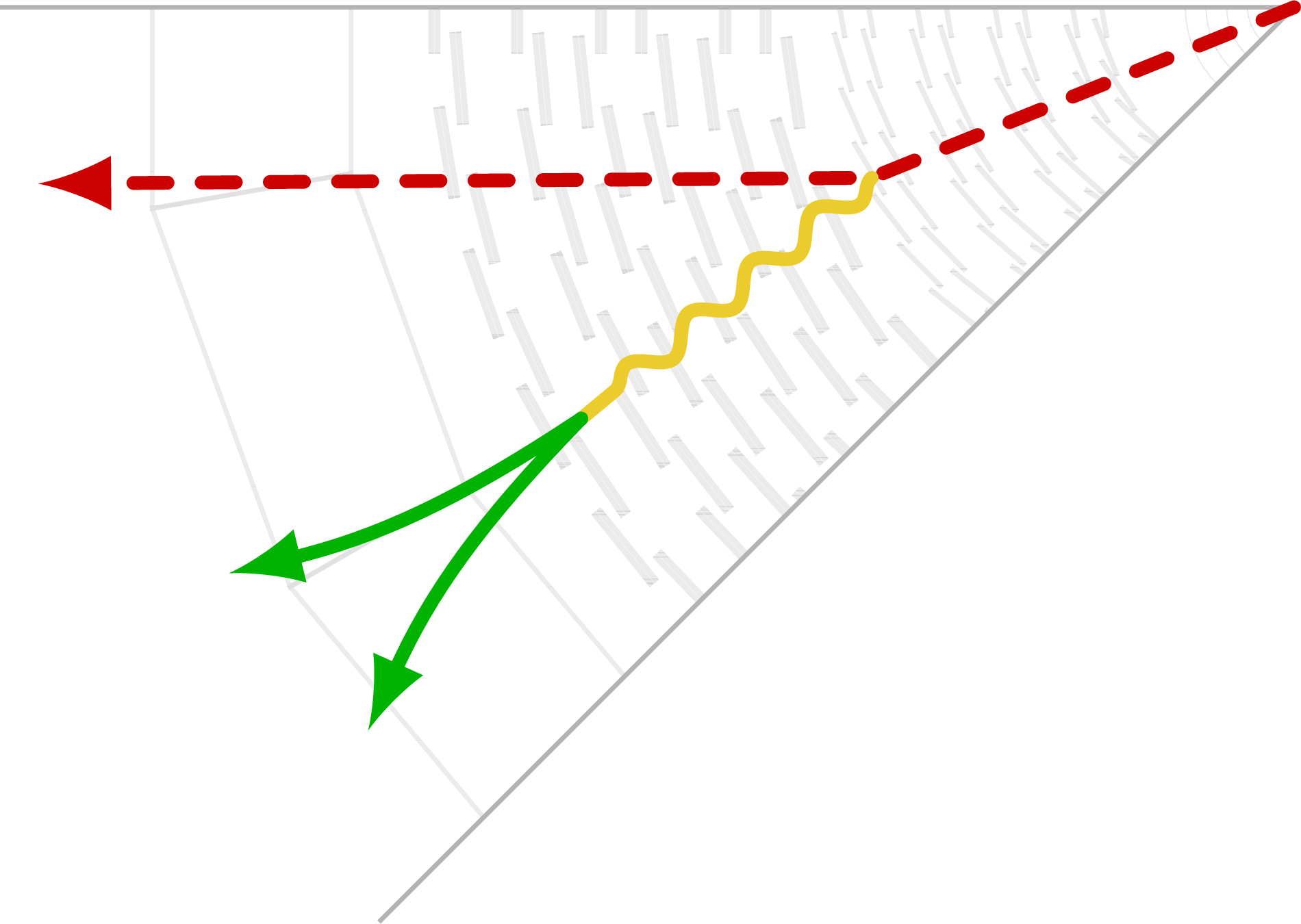
Displaced photon:
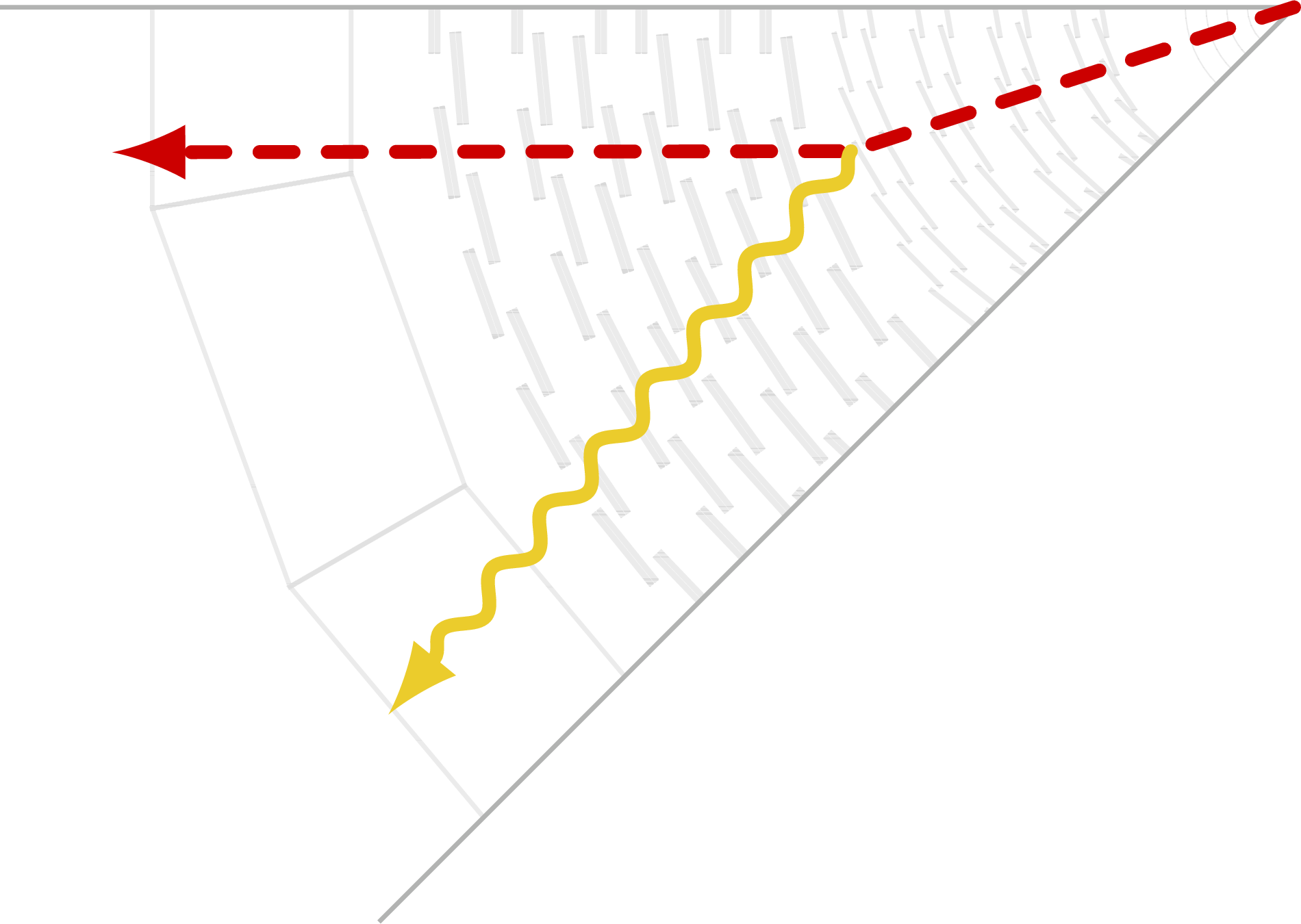
Displaced dilepton in association with a prompt lepton, like the single production of a heavy neutral lepton (HNL), denoted as N, where the HNL decays via a charged current to the fully leptonic final state:
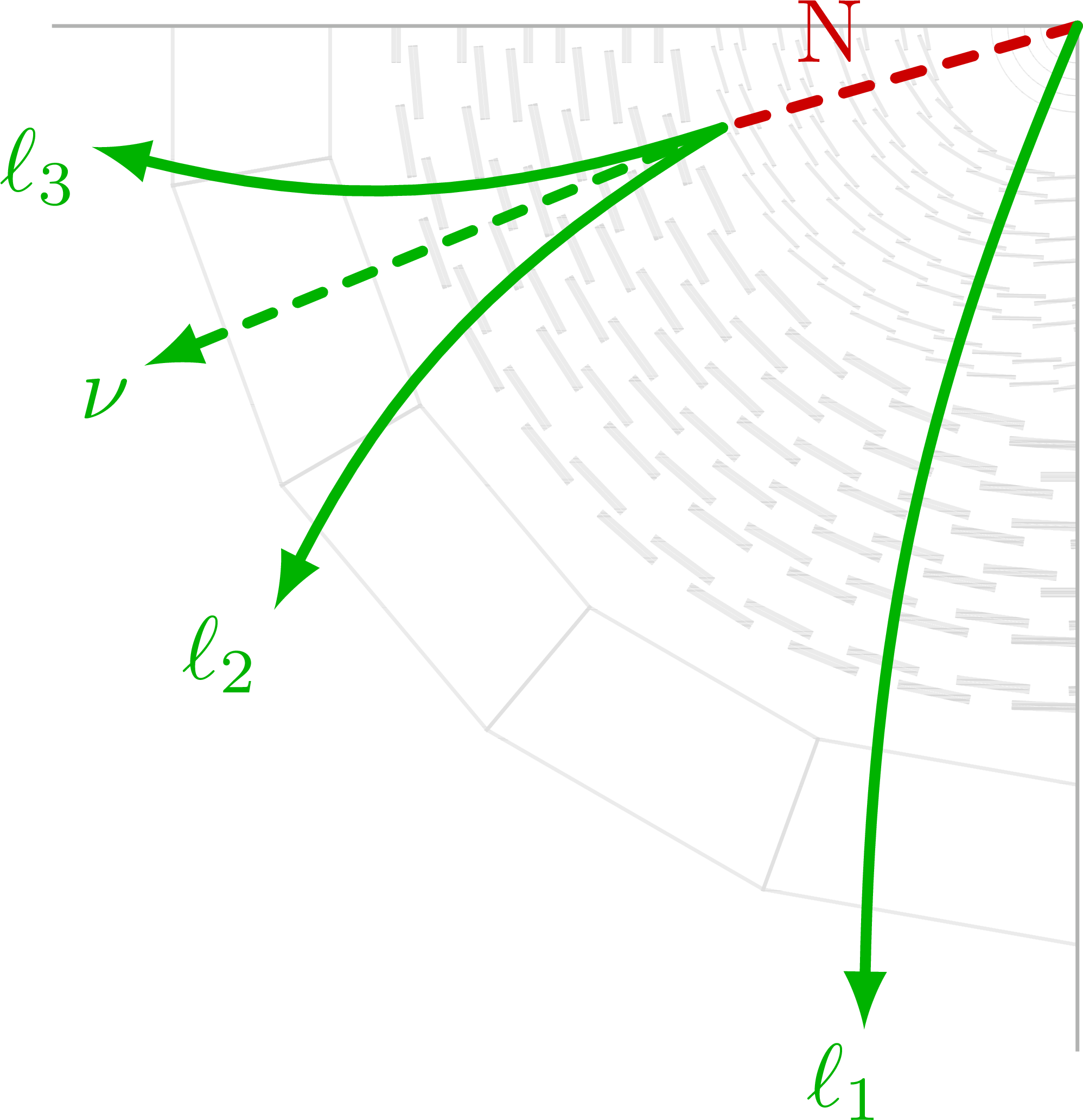
Displaced jet and lepton, in association with a prompt lepton, like single HNL production where the HNL decays via a charged current to the semileptonic final state:
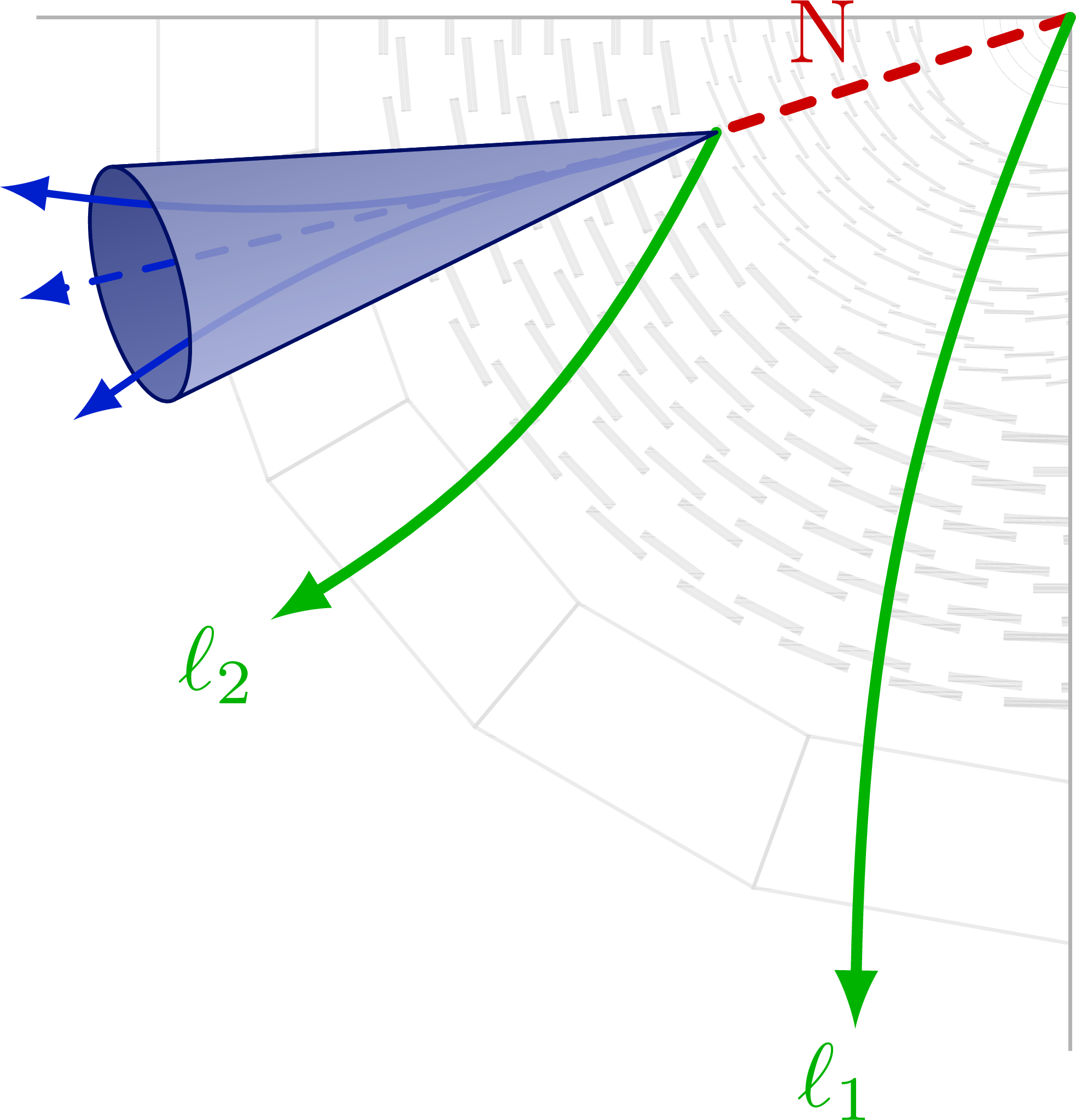
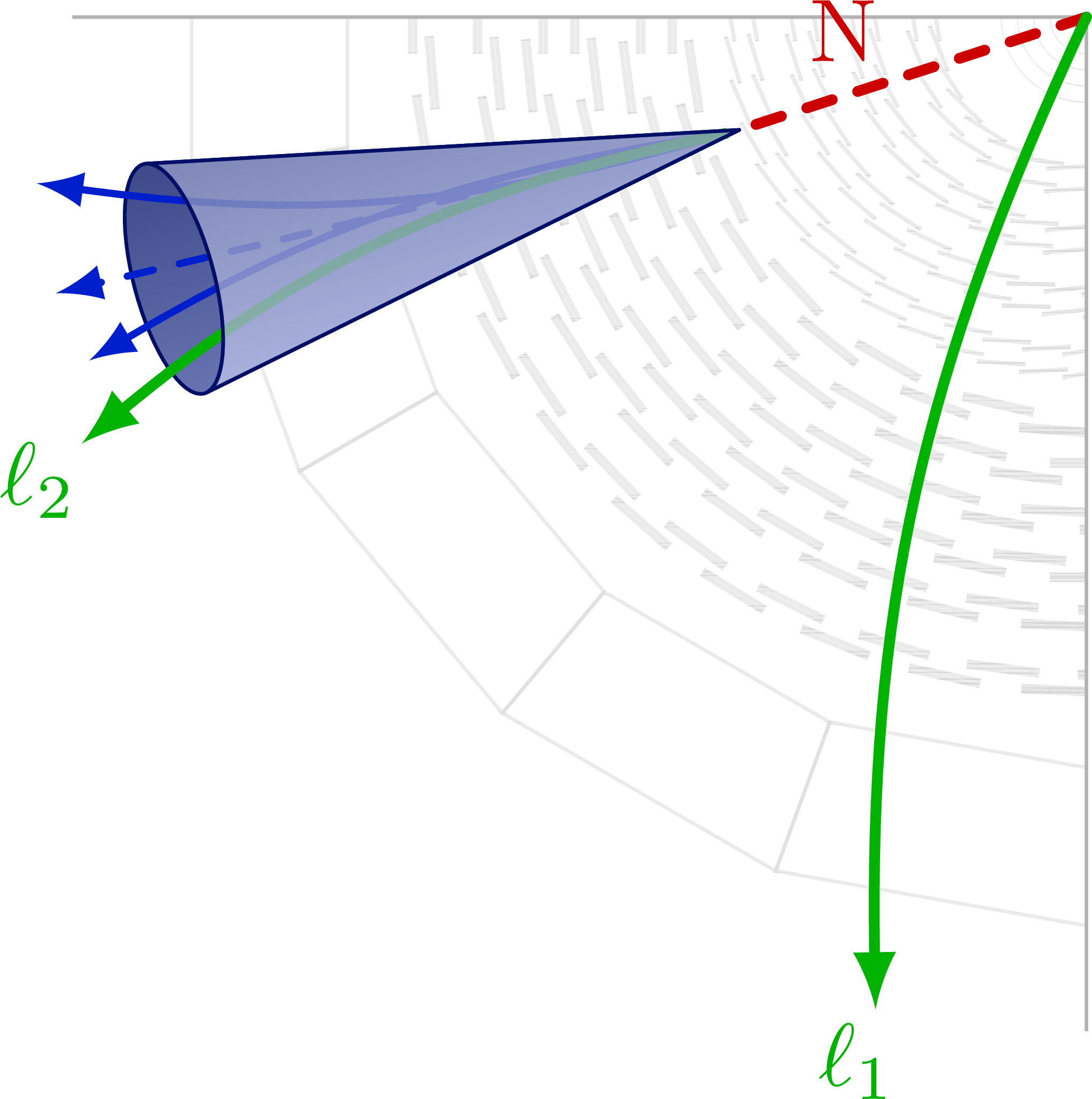
Fully leptonic HNL decay:
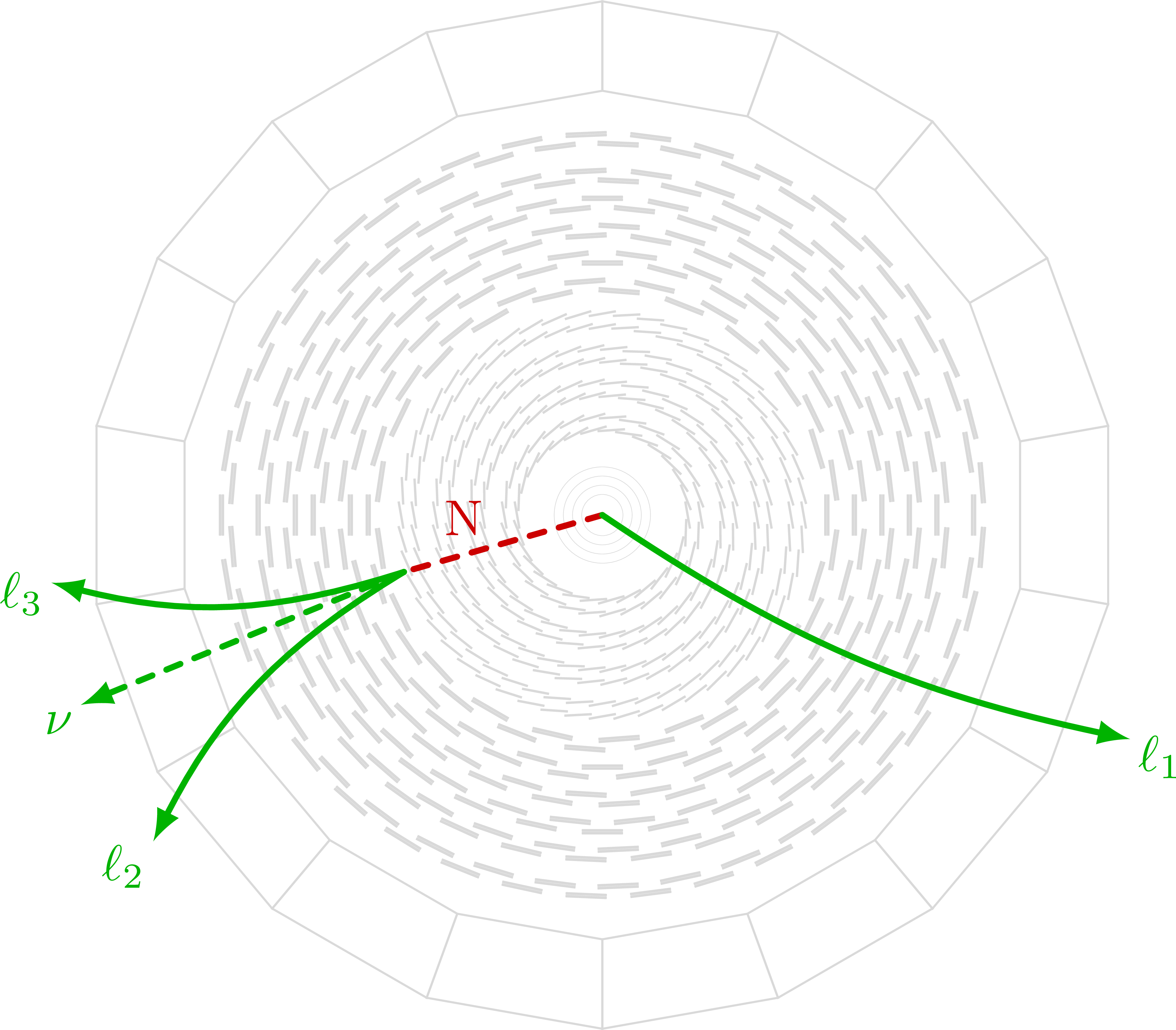
Semileptonic HNL decay:
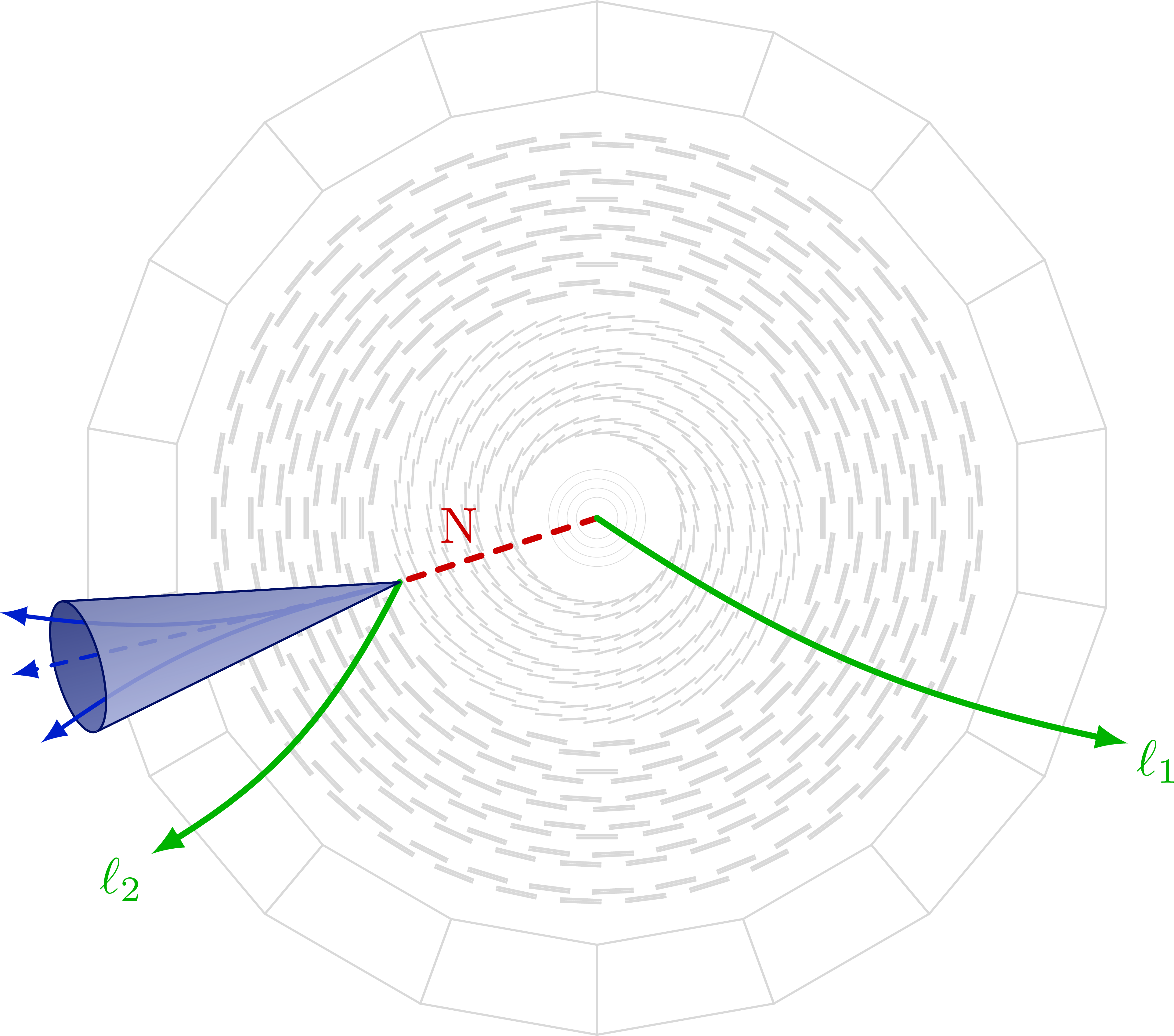
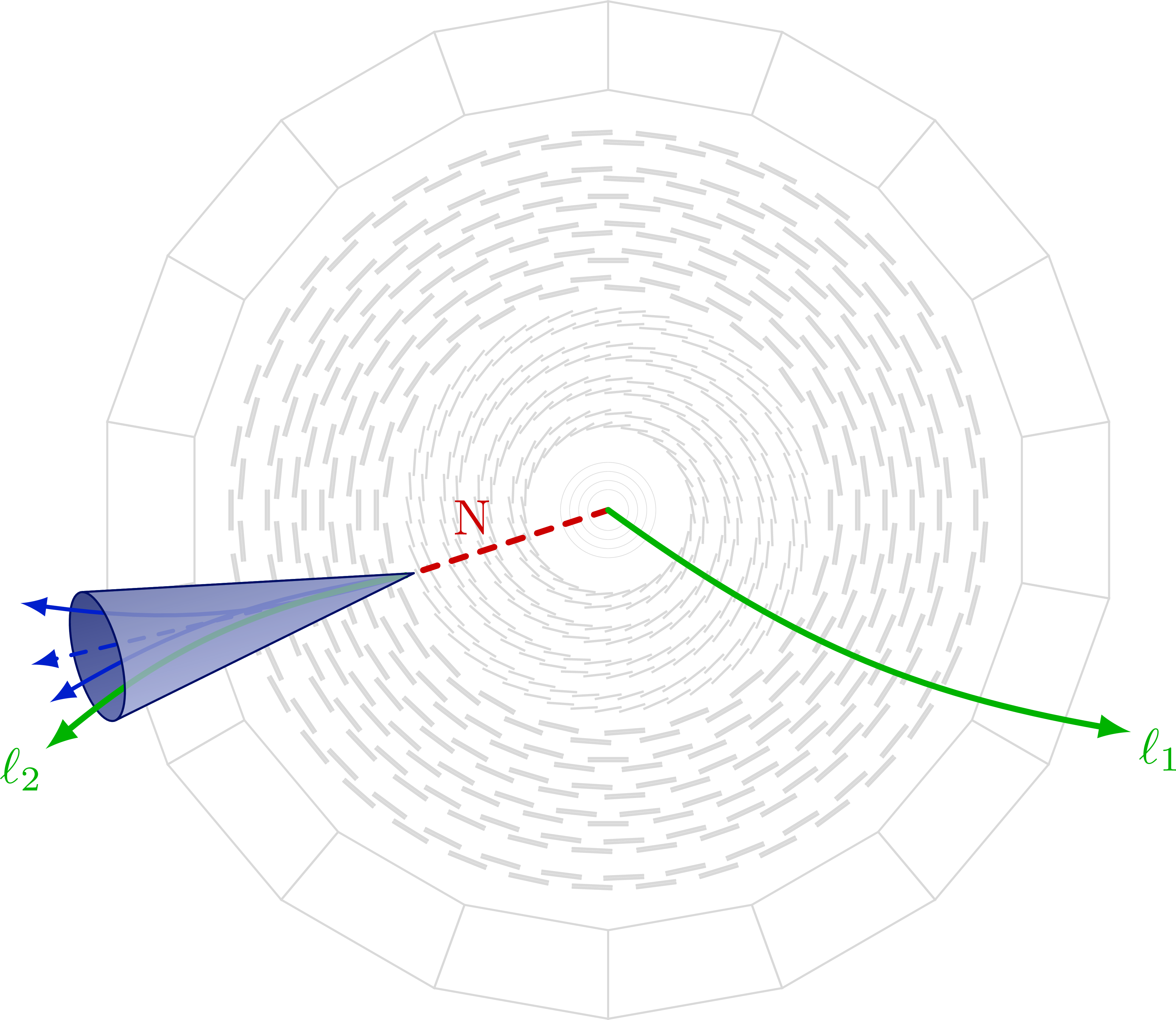
Edit and compile if you like:
% Author: Izaak Neutelings (February 2023)
% Description: Signatures of long-lived particles
% Inspired by J. Antonelli in ICHEP 2016
% https://indico.cern.ch/event/432527/contributions/1072042/attachments/1321320/1981614/Antonelli_ICHEP2016_CMSLLP.pdf
% https://twiki.cern.ch/twiki/bin/view/CMS/ExoticaLongLived (CMS internal)
% Sources:
% CMS Silicon detector: https://cms.cern/detector/identifying-tracks/silicon-strips
% LLPs: https://royalsocietypublishing.org/doi/10.1098/rsta.2019.0047
% LLPs: https://hrussell.web.cern.ch/hrussell/graphics.html
% LLPs: https://indico.cern.ch/event/607314/contributions/2542309/attachments/1447873/2231444/20170424_LLPs.pdf
\documentclass[border=3pt,tikz]{standalone}
\usepackage{amsmath}
\usetikzlibrary{calc}
\usetikzlibrary{math} % for \tikzmath
\usetikzlibrary{decorations.pathmorphing} % for snake, coil, zigzag
\tikzset{>=latex} % set default arrow head as latex
% COLORS
\colorlet{leptoncol}{green!70!black}
\colorlet{quarkcol}{blue!85!cyan!80!black}
\colorlet{photoncol}{yellow!80!orange!90!black}
\colorlet{exocol}{red!80!black}
\colorlet{anycol}{blue!80!cyan!60!red!95!black!90}
% STYLES
\tikzstyle{label}=[align=center,rounded corners=3pt] %fill=blue!60!cyan!80!black!15,
\tikzstyle{legend}=[draw=black,thick,rounded corners=3pt] %,fill=blue!60!cyan!80!black!15
\tikzstyle{entry}=[right=1pt,inner sep=4pt]
\tikzstyle{particle}=[anycol,very thick,line cap=round]
\tikzstyle{lepton}=[particle,leptoncol]
\tikzstyle{quark}=[particle,quarkcol]
\tikzstyle{track}=[quark,thick]
\tikzstyle{photon}=[particle,photoncol,decorate,decoration={
snake,amplitude=.4mm,segment length=2.5mm,post length=1mm}]
\tikzstyle{charged exo}=[particle,exocol]
\tikzstyle{neutral exo}=[charged exo,dashed]
% JET CONE
\newcommand\jetcone[6][quarkcol]{{
\pgfmathanglebetweenpoints{\pgfpointanchor{#2}{center}}{\pgfpointanchor{#3}{center}}
\pgfmathsetmacro\oang{#4/2} % half-opening angle
\edef\e{#5} % ratio a/b ("eccentricity") of cone top
\def\tmpL{tmpL-#2-#3} % unique coordinate name
\edef\vang{\pgfmathresult} % angle of vector OV
\tikzmath{
coordinate \C;
\C = (#2)-(#3); % vector OV
\x = veclen(\Cx,\Cy)*\e*sin(\oang)^2; % x coordinate P
\y = tan(\oang)*(veclen(\Cx,\Cy)-\x); % y coordinate P
\a = veclen(\Cx,\Cy)*sqrt(\e)*sin(\oang); % vertical radius
\b = veclen(\Cx,\Cy)*tan(\oang)*sqrt(1-\e*sin(\oang)^2); % horizontal radius
\angb = acos(sqrt(\e)*sin(\oang)); % angle of P in ellipse
}
\coordinate (#2-v) at ($(#2)+(\vang:1pt)$); % shift vertex
\coordinate (\tmpL) at ($(#3)-(\vang:\x pt)+(\vang+90:\y pt)$); % tangency
\draw[thin,#1!50!black,fill=#1!80!black!50,line cap=round,rotate=\vang] % cone back
(#2) -- (\tmpL) arc(180-\angb:180+\angb:{\a pt} and {\b pt}) -- (#2); %-- cycle;
\draw[thin,#1!50!black,rotate=\vang, % cone inside
top color=#1!60!black!60,bottom color=#1!50!black!75,shading angle=\vang]
(#3) ellipse({\a pt} and {\b pt});
#6 % extra tracks
\draw[thin,#1!50!black,rotate=\vang,fill opacity=0.80, % cone front
top color=#1!90!black!20,bottom color=#1!50!black!50,line cap=round,shading angle=\vang]
(#2) -- (\tmpL) arc(180-\angb:180+\angb:{\a pt} and {\b pt}) -- (#2); %-- cycle;
}}
% DETECTOR
\def\scale{1.6} % scale diagrams
\def\keepseg#1#2{% % return boolean if detector segment falls outside mask
(\mask==0 || (#2>\angmin-4 && #1<\angmax+4) || (#2>\angmin+356 && #1<\angmax+364))
}
\tikzset{
pics/detector/.style args={#1:#2}{
code={
% MASK except segment
\pgfmathsetmacro\mask{#1!=#2}
\pgfmathsetmacro\angmin{#1>=0 ? #1 : 360+#1}
\pgfmathsetmacro\angmax{#2>=0 ? #2 : 360+#2}
\message{^^JDetector: 1=#1, 2=#2, angmin=\angmin, angmax=\angmax, mask=\mask}
\begin{scope}[pic actions]
% CLIP
\ifnum\mask=1 % clip detector segment
%\draw[thick,black] (0,0) -- (#1:2.3) arc(#1:#2:2.3) -- cycle;
%\clip (0,0) -- (\angmin:2.3) arc(\angmin:\angmax:2.3) -- cycle;
\clip (0,0) -- (#1:2.3) arc(#1:#2:2.3) -- cycle;
\fi
% PIXEL TRACKER (PBIX)
\foreach \Rlay in {0.09,0.13,0.17,0.21}{
\message{^^JPixel tracker: Rlay=\Rlay}
\draw[line width=0.1] (0,0) circle(\Rlay);
}
% SILICON INNER TRACKER (TIB)
\def\h{0.12}
\def\w{0.010}
\def\d{0.028}
\foreach \Rlay/\Nlay in {0.40/30,0.55/38,0.70/46,0.85/52}{
\message{^^JInner tracker: Rlay=\Rlay, Nlay=\Nlay}
\foreach \i [
evaluate={\ang=\i*(360/\Nlay);\keep=\keepseg{\ang}{\ang};}
] in {1,...,\Nlay}{
\ifnum\keep=1
\fill[rotate around={\ang+10:(\ang:\Rlay-\d)},rounded corners=0.05pt]
(\ang:\Rlay-\d)++(-\w/2,-\h/2) rectangle++(\w,\h);
\fill[rotate around={\ang+10:(\ang:\Rlay+\d)},rounded corners=0.05pt]
(\ang:\Rlay+\d)++(-\w/2,-\h/2) rectangle++(\w,\h);
\fi
}
}
% OUTER TRACKER (TOB)
\def\h{0.18}
\def\w{0.011}
\def\d{0.021}
\foreach \Rlay/\Nlay in {1.00/21,1.12/24,1.24/27,1.36/30,1.48/33,1.64/37}{
\message{^^JOuter tracker: Rlay=\Rlay, Nlay=\Nlay}
\foreach \i [
evaluate={\anga=(\i-1)*360/\Nlay;\angb=(\i-0.5)*360/\Nlay;
\keep=\keepseg{\anga}{\angb};}
] in {1,...,\Nlay}{
\ifnum\keep=1
\fill[rotate={\anga},rounded corners=0.05pt]
(0:\Rlay-\d-0.55*\w)++(-\w/2,-\h/2) rectangle++(\w,\h)
(0:\Rlay-\d+0.55*\w)++(-\w/2,-\h/2) rectangle++(\w,\h);
\fill[rotate={\angb},rounded corners=0.1pt]
(0:\Rlay+\d-0.55*\w)++(-\w/2,-\h/2) rectangle++(\w,\h)
(0:\Rlay+\d+0.55*\w)++(-\w/2,-\h/2) rectangle++(\w,\h);
\fi
}
}
% ECAL
\def\Ntow{18}
\def\Rin{1.85} % inner radius
\def\Rout{2.24} % outer radius
\message{^^JECAL: Ntow=\Ntow}
\foreach \i [
evaluate={\anga=(\i-1.5)*360/\Ntow;\angb=(\i-0.5)*360/\Ntow;
\keep=\keepseg{\anga}{\angb};}
] in {1,...,\Ntow}{
\ifnum\keep=1
\draw (\anga:\Rin) -- (\anga:\Rout) --
(\angb:\Rout) -- (\angb:\Rin) -- cycle;
\fi
}
%% HCAL
%\def\Rin{2.28} % inner radius
%\def\Rout{3.8} % outer radius
%\message{^^JHCAL: Ntow=\Ntow}
%\foreach \i [
% evaluate={\anga=(\i-1.5)*360/\Ntow;\angb=(\i-0.5)*360/\Ntow;}
% ] in {1,...,\Ntow}{
% \draw
% (\anga:\Rin) -- (\anga:\Rout) --
% (\angb:\Rout) -- (\angb:\Rin) -- cycle;
%}
\end{scope}
\ifnum\mask=1
\draw[black!30] (\angmax:2.5) -- (0,0) -- (\angmin:2.5);
\fi
}
},
pics/detector/.default={0:0}
}
\begin{document}
% LLP SIGNATURES in the CMS detector
\begin{tikzpicture}[scale=\scale]
%\def\R{2} % tracker outer radius
%\def\dang{4} % angular granularity of calo deposits, CMS: 0.0175*180/pi = 1
%% HELP GRID
%\draw[black!20,opacity=0.2,very thin]
% \foreach \r in {0.2,0.4,...,4.4}{(0,0) circle(\r)}
% \foreach \a in {0,10,...,350}{(0,0) -- (\a:4.4)};
%\draw[black!40,opacity=0.2,thin]
% \foreach \r in {1,...,4}{(0,0) circle(\r)}
% \foreach \a in {0,30,...,330}{(0,0) -- (\a:4.4)};
% DETECTOR
\pic[black!15,scale=\scale] {detector};
% DISPLACED LEPTON
\message{^^JParticles}
\draw[charged exo] (0,0) -- (22:0.90) coordinate (V);
\draw[->,lepton] (V) to[bend left=16] (7:2.3);
\draw[->,particle] (V) -- (38:2.3);
% DISPLACED DILEPTON
\draw[neutral exo] (0,0) -- (67:0.90) coordinate (V);
\draw[->,lepton] (V) to[bend left=16] (53:2.2);
\draw[->,lepton] (V) to[bend right=16] (79:2.2);
% HSCP
\draw[->,charged exo] (0,0) to[bend right=18] (120:2.4);
% DISAPPEARING TRACK
\draw[charged exo] (0,0) to[bend right=17] (158:1.1) coordinate (V);
\draw[->,neutral exo] (V) -- (167:2.45);
\draw[particle] (V) arc(80:300:0.11);
% DISPLACED JET
\draw[neutral exo] (0,0) -- (-160:0.90) coordinate (V);
%\draw[->,quark] (V) to[bend left=16] (-172:2.45);
%\draw[->,quark] (V) to[bend right=16] (-148:2.45);
\coordinate (J1) at (-168:2.34); % jet 1 vector
\coordinate (J2) at (-146:2.34); % jet 2 vector
\jetcone[quarkcol]{V}{J1}{23}{0.12}{ % jet 1
\draw[->,track] (V-v) to[bend left=12] (-175:2.62);
\draw[->,track] (V-v) to[bend right=11] (-163:2.60);
\draw[->,track,dashed] (V-v) -- (-169:2.63);
}
\jetcone[quarkcol]{V}{J2}{23}{0.12}{ % jet 2
\draw[->,track] (V-v) to[bend right=12] (-140:2.60);
\draw[->,track] (V-v) to[bend left=10] (-146:2.58);
\draw[->,track] (V-v) to[bend left=12] (-151:2.62);
}
% DISPLACED VERTEX
\draw[neutral exo] (0,0) -- (-115:0.90) coordinate (V);
\draw[->,particle] (V) to[bend left=18] (-130:2.4);
\draw[->,particle] (V) to[bend right=18] (-120:2.3);
\draw[->,particle] (V) to[bend right=14] (-106:2.25);
\draw[->,particle] (V) to[bend left=15] (-95:2.3);
% DISPLACED CONVERSION
\draw[->,neutral exo]
(0,0) -- (-68:0.88) coordinate (V) -- (-82:2.45);
\draw[photon] (V) -- (-60:1.59) coordinate (P);
\draw[->,lepton] (P) to[bend right=10] (-52:2.27);
\draw[->,lepton] (P) to[bend left=10] (-62:2.33);
% DISPLACED PHOTON
\draw[->,neutral exo]
(0,0) -- (-27:0.90) coordinate (V) -- (-38:2.3);
\draw[->,photon] (V) -- (-7:2.22);
% CHARGE LEGEND
\def\lw{0.28} % legend length
\def\lh{0.24} % legend line spacing
\begin{scope}[shift={(-3.1,2.7)},every node/.style={scale=0.87,thick}]
\draw[particle,black]
(0,0) -- (\lw,0) node[entry] (A) {charged}; %particle
\draw[particle,densely dashed,black]
(0,-\lh) -- (\lw,-\lh) node[yshift=1pt,entry] (B) {neutral}; %particle
\draw[legend] (B.south west)++(-1.38*\lw,0) rectangle (A.north east);
\end{scope}
% COLOR LEGEND
\begin{scope}[shift={(2.2,2.7)},every node/.style={scale=0.87}]
\coordinate (JA) at (0,-2*\lh);
\coordinate (JB) at (\lw,-2*\lh);
\draw[charged exo] (0,0) -- (\lw,0) node[entry] (A) {BSM};
\draw[lepton] (0,-\lh) -- (\lw,-\lh) node[entry] {lepton};
%\draw[quark] (0,-2*\lh) -- (\lw,-2*\lh) node[entry] {quark};
\jetcone[quarkcol]{JA}{JB}{23}{0.15}{}
\node[entry,quarkcol] at (JB) {quark jet};
\draw[photon,decoration={segment length=1.6mm,post length=0mm}]
(0,-3*\lh) -- (\lw,-3*\lh) node[right=1pt] {photon};
\draw[particle] (0,-4*\lh) -- (\lw,-4*\lh) node[entry] (B) {anything};
\draw[legend] (A.north west)++(-1.38*\lw,0) rectangle (B.south east);
\end{scope}
% LABELS
\def\Nlab{8}
\def\Rlab{2.3}
\draw[black!30] \foreach \a in {0,45,...,360}{(0,0) -- (\a:2.5)};
%\node[align=center] at (112.5:\Rlab) {HSCP};
%\node[align=center] at (67.5:\Rlab) {displaced\\dilepton};
\foreach \lab [%
count=\i,evaluate={\ang=(\i-0.5)*360/8;}
] in {%
displaced\\lepton,displaced\\dilepton,HSCP\\[-5pt],
disappearing\\track,displaced\hspace*{7pt}\\dijet,displaced\\vertex,
displaced\\conversion,displaced\\photon%
}{
\node[label,anchor={\ang+180}] %,font=\bf]
at (\ang:\Rlab) {\lab};
}
\end{tikzpicture}
%% LLP SIGNATURE: DISPLACED LEPTON
%\begin{tikzpicture}[scale=\scale,rotate=180]
% \draw pic[black!15,scale=\scale] {detector={180:225}};
% \draw[charged exo] (0,0) -- (22:0.90) coordinate (V);
% \draw[->,lepton] (V) to[bend left=16] (7:2.3);
% \draw[->,particle] (V) -- (38:2.3);
%\end{tikzpicture}
%
%
%% LLP SIGNATURE: DISPLACED DILEPTON
%\begin{tikzpicture}[scale=\scale,rotate=135]
% \draw pic[black!15,scale=\scale] {detector={180:225}};
% \draw[neutral exo] (0,0) -- (67:0.90) coordinate (V);
% \draw[->,lepton] (V) to[bend left=16] (53:2.2);
% \draw[->,lepton] (V) to[bend right=16] (79:2.2);
%\end{tikzpicture}
%
%
%% LLP SIGNATURE: HSCP
%\begin{tikzpicture}[scale=\scale,rotate=90]
% \draw pic[black!15,scale=\scale] {detector={180:225}};
% \draw[->,charged exo] (0,0) to[bend right=18] (120:2.4);
%\end{tikzpicture}
%
%
%% LLP SIGNATURE: DISAPPEARING TRACK
%\begin{tikzpicture}[scale=\scale,rotate=45]
% \draw pic[black!15,scale=\scale] {detector={180:225}};
% \draw[charged exo] (0,0) to[bend right=17] (158:1.1) coordinate (V);
% \draw[->,neutral exo] (V) -- (167:2.45);
% \draw[lepton] (V) arc(80:300:0.11);
%\end{tikzpicture}
%
%
%% LLP SIGNATURE: DISPLACED JETS
%\begin{tikzpicture}[scale=\scale,rotate=0]
% \draw pic[black!15,scale=\scale] {detector={180:225}};
% \draw[neutral exo] (0,0) -- (-160:0.90) coordinate (V);
% %\draw[->,quark] (V) to[bend left=16] (-172:2.45);
% %\draw[->,quark] (V) to[bend right=16] (-148:2.45);
% \coordinate (J1) at (-168:2.34); % jet 1 vector
% \coordinate (J2) at (-146:2.34); % jet 2 vector
% \jetcone[quarkcol]{V}{J1}{23}{0.12}{ % jet 1
% \draw[->,track] (V-v) to[bend left=12] (-175:2.62);
% \draw[->,track] (V-v) to[bend right=11] (-163:2.60);
% \draw[->,track,dashed] (V-v) -- (-169:2.63);
% }
% \jetcone[quarkcol]{V}{J2}{23}{0.12}{ % jet 2
% \draw[->,track] (V-v) to[bend right=12] (-140:2.60);
% \draw[->,track] (V-v) to[bend left=10] (-146:2.58);
% \draw[->,track] (V-v) to[bend left=12] (-151:2.62);
% }
%\end{tikzpicture}
%
%
%% LLP SIGNATURE: DISPLACED VERTEX
%\begin{tikzpicture}[scale=\scale,rotate=-45]
% \draw pic[black!15,scale=\scale] {detector={180:225}};
% \draw[neutral exo] (0,0) -- (-115:0.90) coordinate (V);
% \draw[->,particle] (V) to[bend left=18] (-130:2.4);
% \draw[->,particle] (V) to[bend right=18] (-120:2.3);
% \draw[->,particle] (V) to[bend right=14] (-106:2.25);
% \draw[->,particle] (V) to[bend left=15] (-95:2.3);
%\end{tikzpicture}
%
%
%% LLP SIGNATURE: DISPLACED CONVERSION
%\begin{tikzpicture}[scale=\scale,rotate=-90]
% \draw pic[black!15,scale=\scale] {detector={180:225}};
% \draw[->,neutral exo]
% (0,0) -- (-68:0.88) coordinate (V) -- (-82:2.45);
% \draw[photon] (V) -- (-60:1.59) coordinate (P);
% \draw[->,lepton] (P) to[bend right=10] (-52:2.27);
% \draw[->,lepton] (P) to[bend left=10] (-62:2.33);
%\end{tikzpicture}
%
%
%% LLP SIGNATURE: DISPLACED PHOTON
%\begin{tikzpicture}[scale=\scale,rotate=-135]
% \draw pic[black!15,scale=\scale] {detector={180:225}};
% \draw[->,neutral exo]
% (0,0) -- (-27:0.90) coordinate (V) -- (-38:2.3);
% \draw[->,photon] (V) -- (-7:2.22);
%\end{tikzpicture}
%
%
%% FOR LOOP: Make HNL diagrams with quarter and full tracker
%\foreach \dang [evaluate={\lang=(\dang>200?-102:-23);}] in {270,180}{
%
%% LLP SIGNATURE: DISPLACED DILEPTON + PROMPT LEPTON
%% E.g. a heavy neutral lepton (HNL)
%\begin{tikzpicture}[scale=\scale,rotate=0]
% \def\angN{-164} % angle of HNL
% \draw pic[black!15,scale=\scale] {detector={180:\dang}};
% \coordinate (PV) at (0,0); % primary vertex
% \draw[neutral exo] (PV) -- (\angN:0.90) coordinate (V)
% node[pos=0.7,above=0pt] {N};
% \coordinate (L1) at (\lang:2.50); % prompt lepton
% \coordinate (L2) at (\angN+20:2.42); % displaced lepton 1
% \coordinate (L3) at (\angN-9:2.42); % displaced lepton 2
% \coordinate (N) at (\angN+4:2.42); % displaced neutrino
% \draw[->,lepton] (PV) to[bend right=11] (L1) % prompt lepton
% node[anchor=172+\lang,inner sep=1pt] {$\ell_1$};
% \draw[->,lepton] (V) to[bend right=16] (L2) % displaced lepton 1
% node[anchor=40,inner sep=1pt] {$\ell_2$};
% \draw[->,lepton] (V) to[bend left=16] (L3) % displaced lepton 2
% node[anchor=20,inner sep=1pt] {$\ell_3$};
% \draw[->,lepton,dashed] (V) -- (N) % displaced neutrino
% node[anchor=40,inner sep=1pt] {$\nu$};
%\end{tikzpicture}
%
%% LLP SIGNATURE: DISPLACED JET + PROMPT LEPTON
%% E.g. a heavy neutral lepton (HNL)
%\begin{tikzpicture}[scale=\scale,rotate=0]
% \def\angN{-162} % angle of HNL
% \draw pic[black!15,scale=\scale] {detector={180:\dang}};
% \coordinate (PV) at (0,0); % primary vertex
% \draw[neutral exo] (PV) -- (\angN:0.90) coordinate (V)
% node[pos=0.7,above=0pt] {N};
% \coordinate (J) at (\angN-2:2.34); % displaced jet vector
% \coordinate (L1) at (\lang:2.50); % prompt lepton
% \coordinate (L2) at (\angN+19:2.42); % displaced lepton
% \draw[->,lepton] (PV) to[bend right=11] (L1) % prompt lepton
% node[anchor=172+\lang,inner sep=1pt] {$\ell_1$};
% \draw[->,lepton] (V) to[bend left=16] (L2) % displaced lepton
% node[anchor=40,inner sep=1pt] {$\ell_2$};
% \jetcone[quarkcol]{V}{J}{23}{0.12}{ % displaced jet
% \draw[->,track] (V-v) to[bend left=12] (\angN-9:2.62);
% \draw[->,track] (V-v) to[bend right=11] (\angN+4:2.60);
% \draw[->,track,dashed] (V-v) -- (\angN-3:2.63);
% }
%\end{tikzpicture}
%
%% LLP SIGNATURE: DISPLACED JET + PROMPT LEPTON (boosted)
%% E.g. a heavy neutral lepton (HNL), boosted N -> lqq'
%\begin{tikzpicture}[scale=\scale,rotate=0]
% \def\angN{-162} % angle of HNL
% \draw pic[black!15,scale=\scale] {detector={180:\dang}};
% \coordinate (PV) at (0,0); % primary vertex
% \draw[neutral exo] (PV) -- (\angN:0.90) coordinate (V)
% node[pos=0.7,above=0pt] {N};
% \coordinate (J) at (\angN-2:2.34); % displaced jet vector
% \coordinate (L1) at (\lang:2.50); % prompt lepton
% \coordinate (L2) at (\angN+5:2.69); % displaced lepton
% \draw[->,lepton] (PV) to[bend right=13] (L1) % prompt lepton
% node[anchor=172+\lang,inner sep=1pt] {$\ell_1$};
% \jetcone[quarkcol]{V}{J}{23}{0.12}{ % displaced jet
% \draw[->,track] (V-v) to[bend left=12] (\angN-9:2.62);
% \draw[->,track] (V-v) to[bend right=11] (\angN+1:2.60);
% \draw[->,track,dashed] (V-v) -- (\angN-3:2.63);
% \draw[->,lepton] (V-v) to[bend right=14] (L2) % displaced lepton
% node[anchor=40,inner sep=0pt] {$\ell_2$};
% }
%\end{tikzpicture}
%
%} % end \foreach
\end{document}
Click to download: BSM_longlived.tex • BSM_longlived.pdfOpen in Overleaf: BSM_longlived.tex
